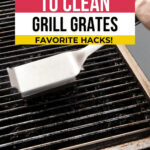Knowing the best way to clean grill gates will come in handy whether you cook for yourself, or for a group of people. Getting all the grease and grime off your grill may seem frustrating at first, but by following this tutorial it will teach you the most efficient way to clean those grates!
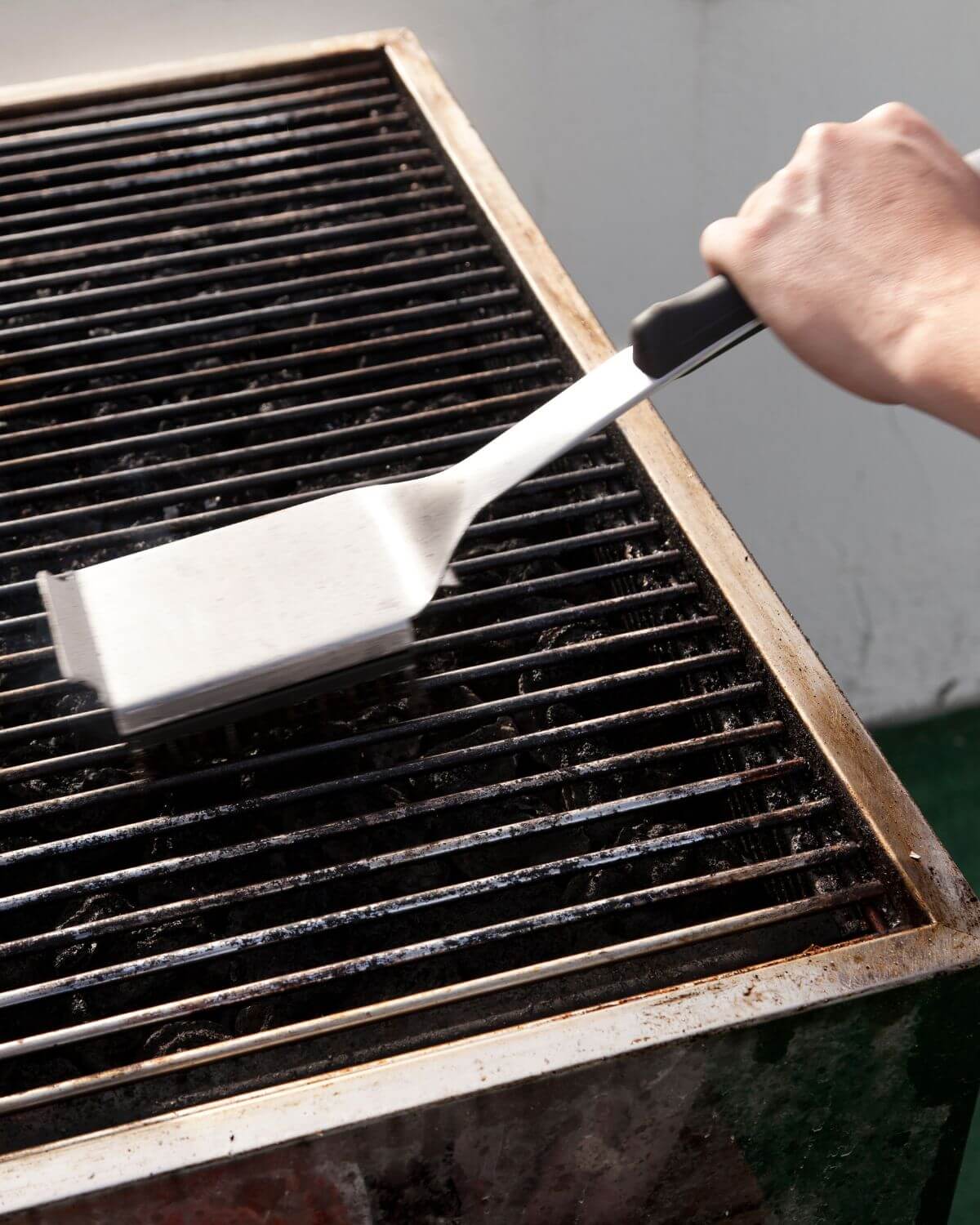
SAVE THIS RECIPE!
Enter your email below and we’ll send this recipe straight to your inbox.
Grilling is a popular way to cook food and enjoy time with family and friends, but it can also be a hassle when it comes to cleaning the grill grates. It’s important to clean your grill regularly for both safety and flavor, but which method is the best way to clean your grill grates?
In this article, we will discuss the best way to clean grill grates in order to make sure that you are taking the most effective approach. Whether you’re wondering how to clean rusty grill grates, how to clean stainless steel grill grates, how to clean cast iron grill grates, or just how to clean bbq grill, we have the answers for you!
Be sure to check out our favorite grilling must haves for your every day grilling needs!
What Is a Grill Grate?
Grill grates are an essential component of any grill. If you’re a fan of outdoor cooking, then you’re probably familiar with the term “grill grate.” But what is it exactly? A grill grate is a metal grid that sits on top of your grill’s burners to hold and cook your food. It’s typically made from stainless steel, cast iron or porcelain-coated materials.
When using a grill grate, it’s important to keep it clean to prevent food from sticking and to avoid flare-ups caused by grease buildup.
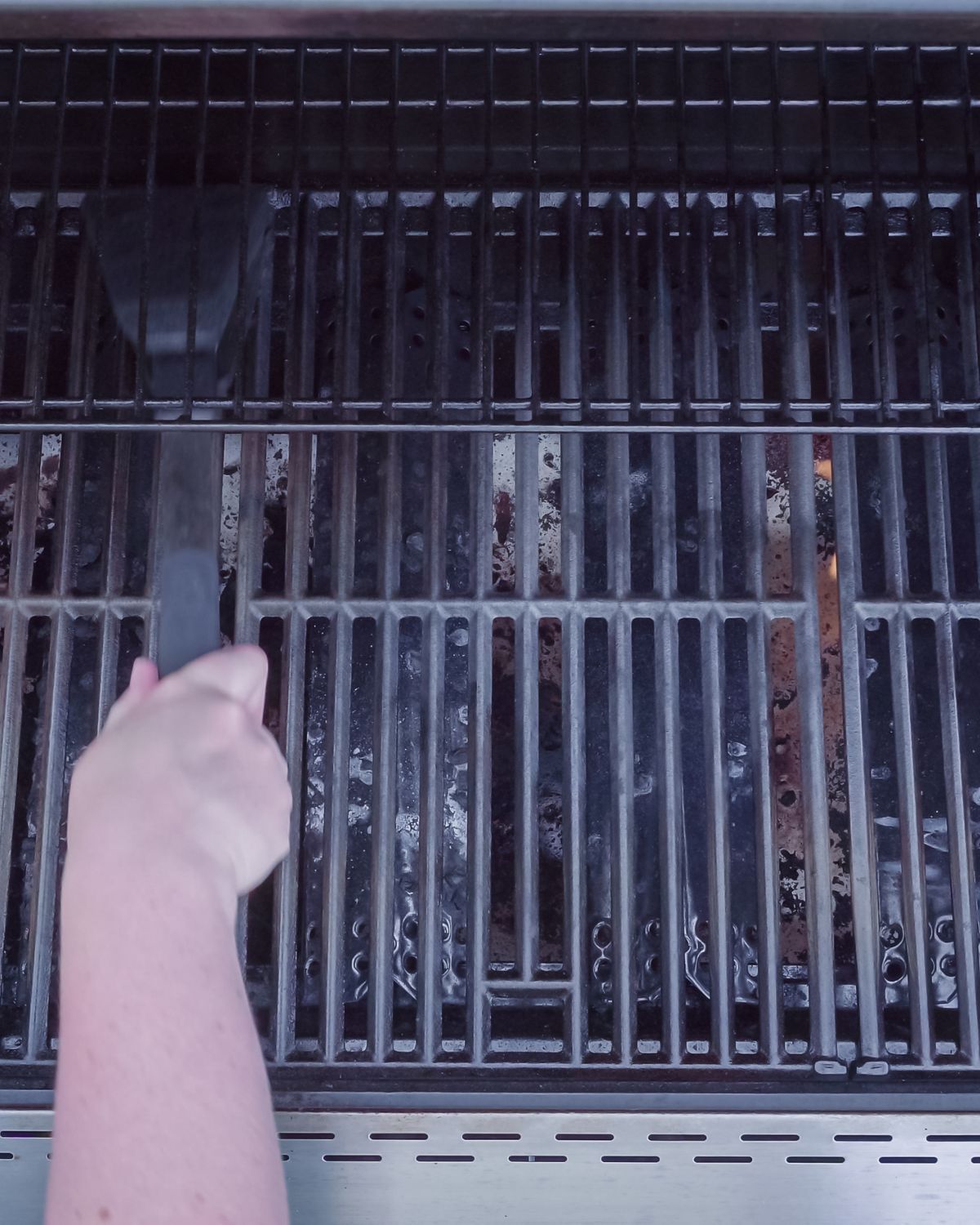
Types of Grill Grates
Grill grates come in different sizes and shapes, depending on the type of grill you have. The most common shapes are rectangular or circular. They also vary in thickness, which can affect how well they retain heat and distribute it evenly across the surface. Thicker grates tend to last longer and provide better searing marks on meat.
The first type of grill grate is made from cast iron. Cast iron grates are durable and retain heat well, making them ideal for searing meat and creating those beautiful grill marks that everyone loves. They require seasoning before use to prevent rusting and sticking.
Another option is stainless steel grates that are easy to clean and maintain but don’t retain heat as well as cast iron ones.
A third option is porcelain grates. Made from ceramic-coated steel or cast iron, these grates provide a non-stick surface that is easy to clean and maintain. The porcelain coating also prevents rusting and protects the metal from damage caused by high heat.
- GRILL & SMOKER CLEANER : Super-strength gel cleans your grill and is safe on food-prep surfaces. Works great for cleaning pellet smokers and electric smokers
- GREASE REMOVER: Quickly cleans and removes grease from your grill and grates
- BIODEGRADABLE: Super-strength gel is biodegradable and reduces smoke/flare-ups
Benefits of Cleaning your Grill Grates
Cleaning your grill grates regularly doesn’t just keep them looking shiny and new, it has a multitude of benefits for your cooking experience.
The first benefit is that it ensures the safety of your food. When you cook on dirty grill grates, you risk transferring harmful bacteria to your food which can lead to foodborne illnesses. By regularly cleaning your grill grates, you eliminate this risk and ensure that every meal you make is safe to eat.
Another benefit of cleaning your grill grates is that it improves the taste of your food. Dirty grill grates can leave behind burnt-on residue from previous meals which can create an unpleasant aftertaste in your food. By removing this buildup through regular cleaning, you’ll be able to enjoy the full flavor of whatever dish you’re cooking up next.
How to Clean Your Grill Grates
STEP 1: Porcelain Grates
Porcelain grates are rust-resistant, but its important that you take care of your grates so no chips or cracks allow water to seep into your grill which will cause rust.
Don’t use metal or wire brushes. Use a soft bristle or a nylon grill brush.
Burn off any food leftover on the grates.
Then, let the grates cool and scrub them with the nylon cleaning brush.
STEP 2: Cast Iron Grates
Cast iron grill grates can withstand just about anything except water — iron is prone to rusting.
When cleaning cast iron grates, burn off any food left over on the grates.
Then, let the grates cool and scrub them with a nylon cleaning brush.
After cleaning the grates, dry and apply vegetable oil to the grates to prevent rust from forming.
STEP 3: Stainless Steel Grates
When cleaning stainless steel grates, cover the top of the grates with aluminum foil and heat the grates on high for 10 to 15 minutes.
The aluminum foil will cause the heat on the grates to burn off the leftover food.
Let the grates cool and scrub them with a nylon cleaning brush.
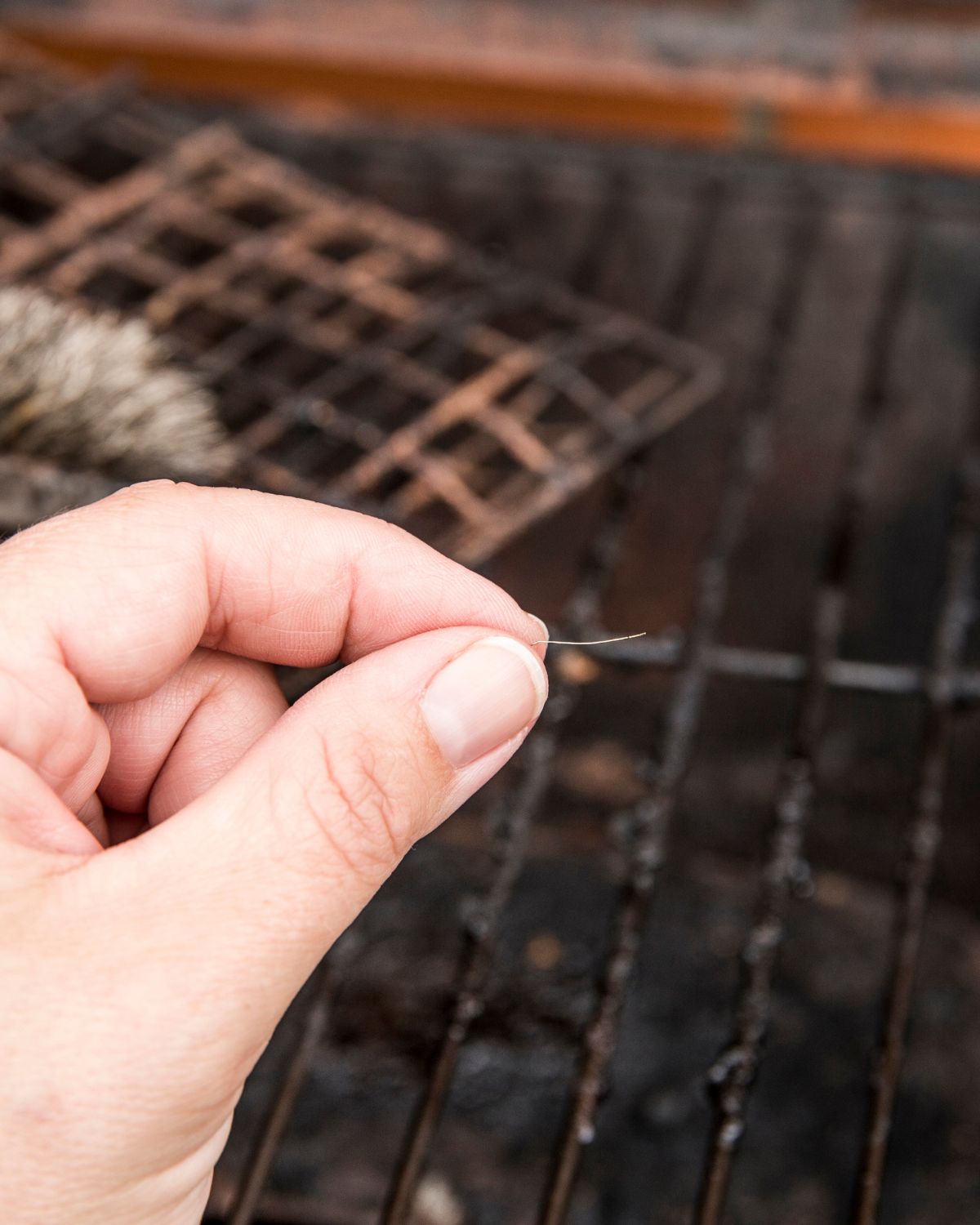
Frequently Asked Questions
It’s essential to take into account what type of food you’ll be cooking on your grill. If you’re planning on grilling meat such as beef or chicken, then cast iron grates are ideal because they retain heat well and provide an excellent sear.
However, if you prefer vegetables or fish, stainless steel grates are a better option as they are less sticky and easier to clean.
Secondly, consider how easy it will be to maintain your grill’s grates. Cast iron grates require seasoning regularly to prevent rusting and maintain their non-stick properties.
One of the most common questions that people ask is how long their grill will stay clean after cleaning. The answer to this question depends on several factors, such as the type of grill you have, how often you use it, and how well you maintain it.
If you have a gas grill, it can stay clean for a longer period compared to charcoal grills. This is because gas grills are easier to clean since there are no ashes or charcoal residue left behind after grilling. However, if your gas grill has not been maintained well or has accumulated a lot of grease and dirt over time, its cleanliness may not last very long.
There are three main types of grill brushes: wire bristle brushes, nylon bristle brushes, and natural fiber bristle brushes. Wire bristle brushes are the most common type of grill brush and most dangerous. It is important to stay away from these as stray metal bristles can break off and end up in your food causing serious injury if ingested.
Expert Tips for Best Way to Clean Grill Grates
- When Deep Cleaning Your Grill Grates: Whether you have food that won’t come off with a grill brush, stubborn rust that refuses to go, or you’re doing your annual deep cleanse, these tips will help with your deep cleaning of grates.
- Tip 1: soak the grates in a mix of vinegar and baking soda
- Tip 2 : use a nylon brush after soaking to remove any unwanted grease or grime
- Tip 3: vinegar and baking soda will work together to break apart burnt-on food
- Tip 4: do NOT use wire bristle brushes, as the metal bristles will break off and can get stuck in your food causing injury
- Recommended Tools & Equipment:
- Bristle-Free Brush
- Nylon Brush
More Ingredient Tutorials
Grill Recipes to Try
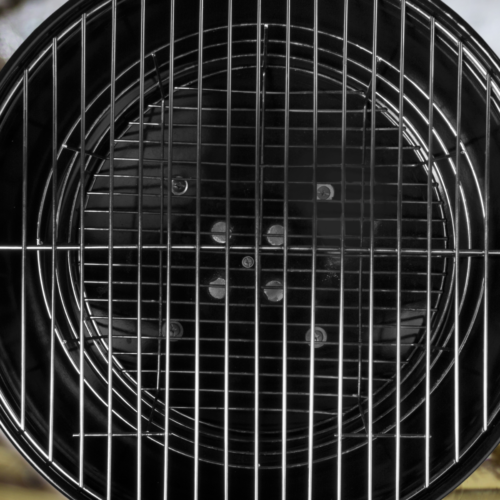
Best Way to Clean Grill Grates
Equipment
- 1 Bristle-Free Brush
- 1 Nylon Brush
Materials
- 1 whole grill
Instructions
- STEP 1: Porcelain GratesPorcelain grates are rust-resistant, but it’s important that you take care of your grates so no chips or cracks allow water to seep into your grill which will cause rust.Don’t use metal or wire brushes. Use a soft bristle or a nylon grill brush.Burn off any food leftover on the grates.Then, let the grates cool and scrub them with the nylon cleaning brush.
- STEP 2: Cast Iron GratesCast iron grill grates can withstand just about anything except water — iron is prone to rusting.When cleaning cast iron grates, burn off any food left over on the grates.Then, let the grates cool and scrub them with a nylon cleaning brush.After cleaning the grates, dry and apply vegetable oil to the grates to prevent rust from forming.
- STEP 3: Stainless Steel GratesWhen cleaning stainless steel grates, cover the top of the grates with aluminum foil and heat the grates on high for 10 to 15 minutes.The aluminum foil will cause the heat on the grates to burn off the leftover food.Let the grates cool and scrub them with a nylon cleaning brush.
Expert Tips
Expert Tips for Best Way to Clean Grill Grates
- When Deep Cleaning Your Grill Grates: Whether you have food that won’t come off with a grill brush, stubborn rust that refuses to go, or you’re doing your annual deep cleanse, these tips will help with your deep cleaning of grates.
- Tip 1: soak the grates in a mix of vinegar and baking soda
- Tip 2 : use a nylon brush after soaking to remove any unwanted grease or grime
- Tip 3: vinegar and baking soda will work together to break apart burnt-on food
- Tip 4: do NOT use wire bristle brushes, as the metal bristles will break off and can get stuck in your food causing injury
- Recommended Tools & Equipment:
- Bristle-Free Brush
- Nylon Brush


